Samaaro + Your CRM: Zero Integration Fee for Annual Sign-Ups Until 30 June, 2025
- 00Days
- 00Hrs
- 00Min
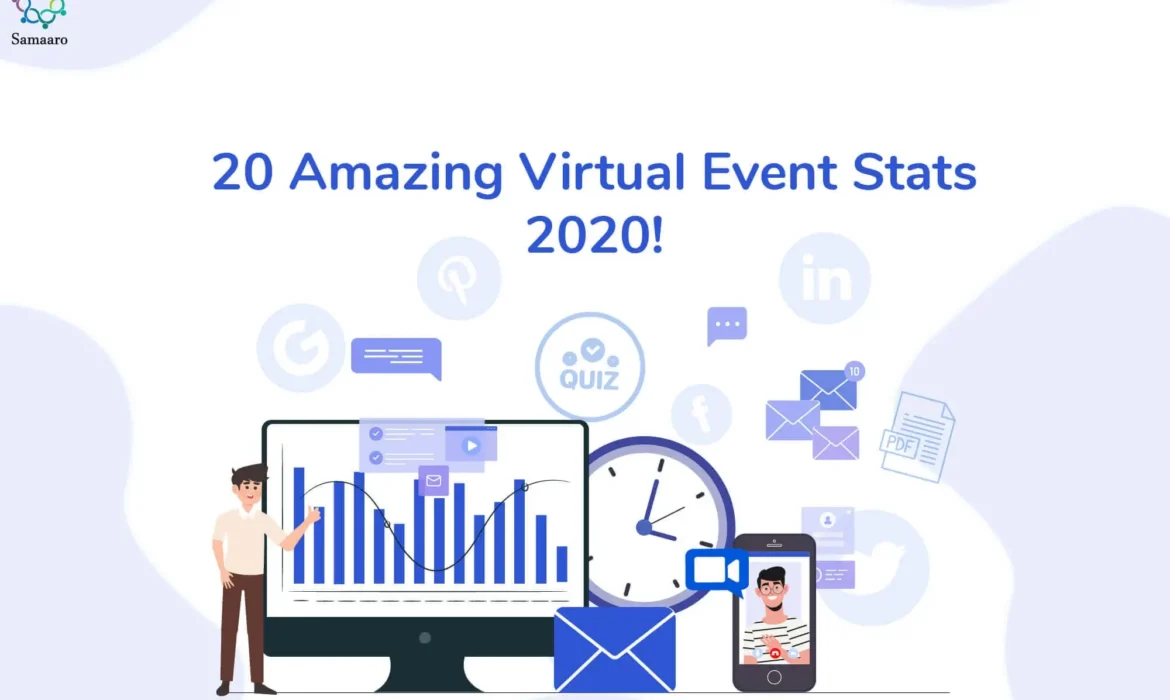
When the concept of virtual events first came up in 2009, nobody took it seriously, let alone consider it as a worthy alternative to in-person events. But slowly, as digital technologies advanced, virtual events have now caught the full attention of event organizers and business owners alike. Apart from the obvious benefits like cost-saving, virtual events provide a unique opportunity for business owners to host events that attract global audiences, generate new revenue streams and create higher brand awareness. If you have heard about virtual events, but you’re not sure if you want to host one, then the following virtual event statistics will help you understand why now is the best time to host online events.
Suggested Read: What Are Virtual Events and Why You Should Host Them?
1. A report suggests that the global virtual events market size is currently valued at $ 77.98 billion and is forecasted to grow at a compound annual growth rate of 23.2% from now to 2027. This means the virtual event platform market can be expected to be valued at $774 Billion by 2030. (Source: Grand View Search)
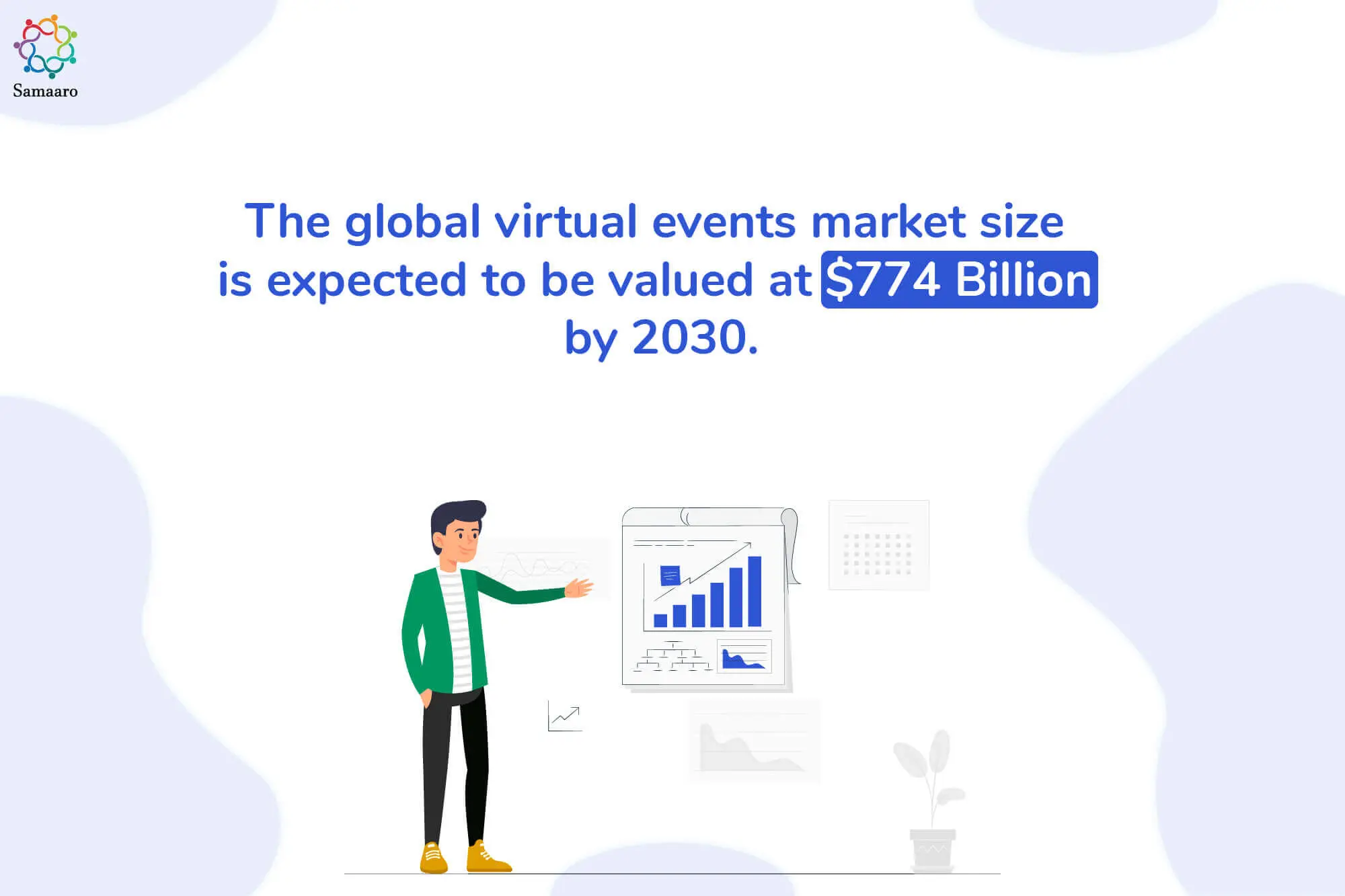
2. Customer retention and engagement are the top priority (70%) for event managers. However, these two are also the most effort-intensive and challenging parts of hosting an event along with driving attendance (48%). (Source: Sweap)
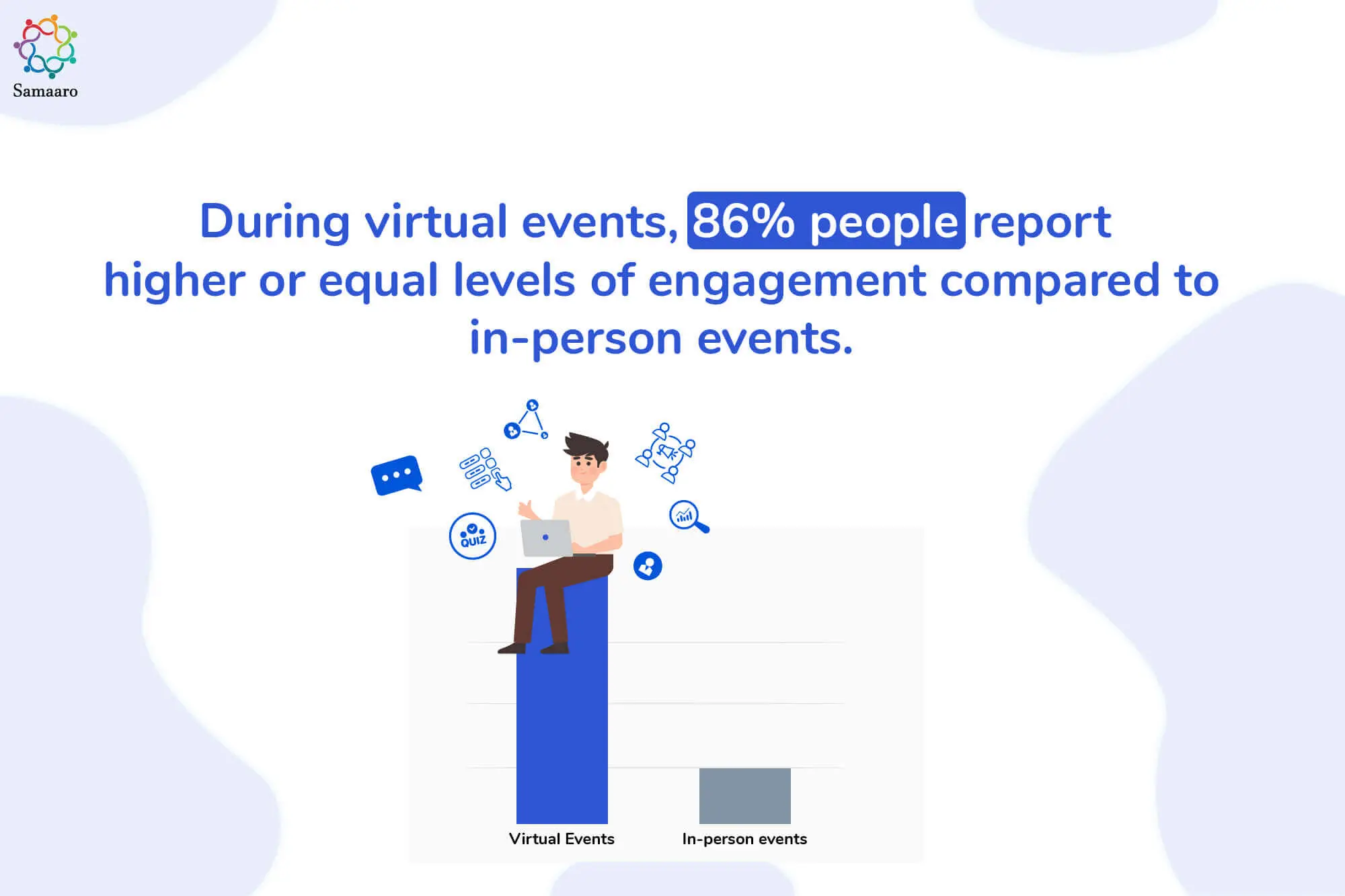
3. 80% of people join virtual events for educational purposes. The next biggest reason for joining virtual events is networking. (Source: Markletic)
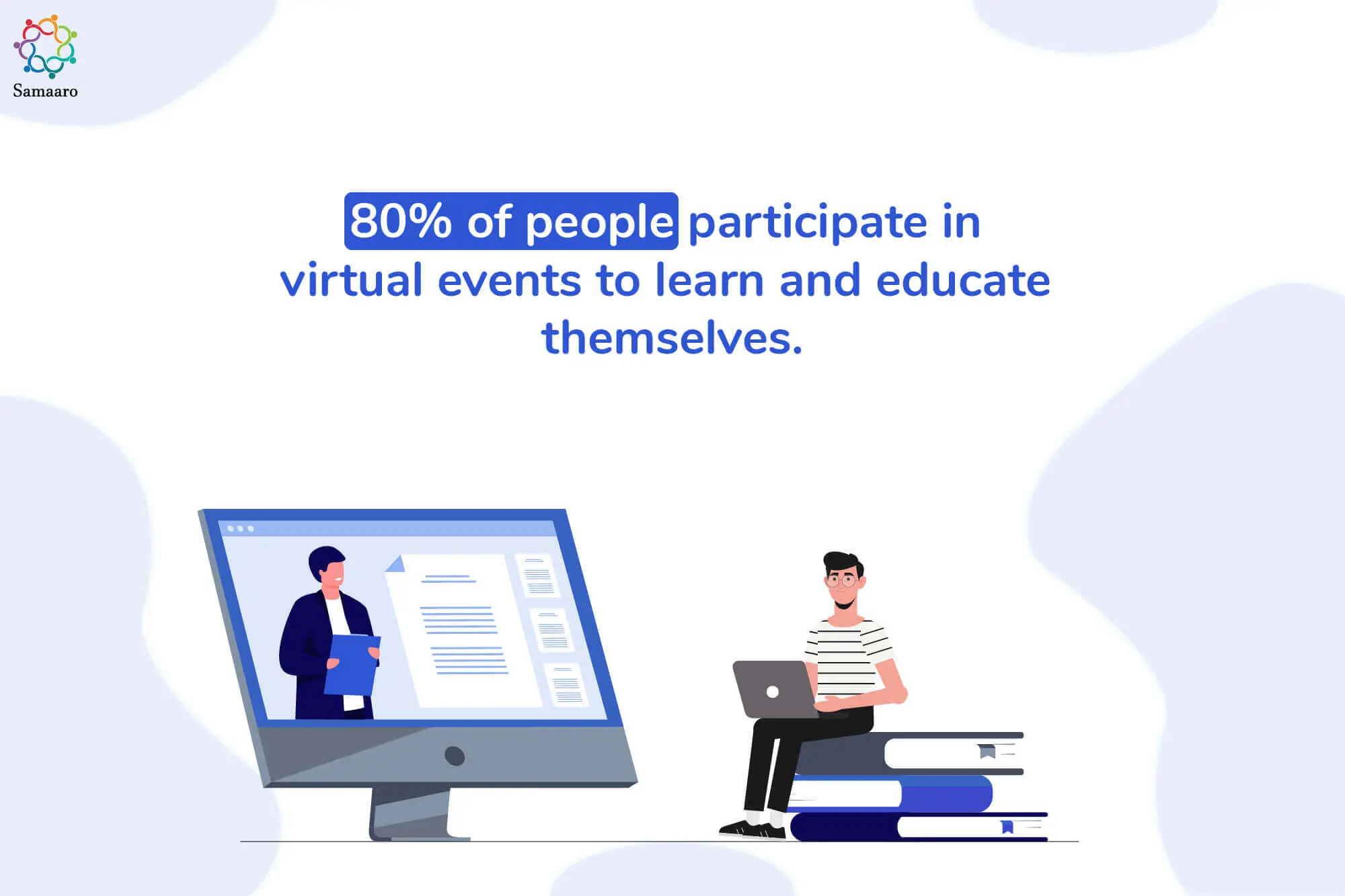
4. Asia Pacific is anticipated to emerge as the fastest-growing regional market, registering a CAGR of 25.8% from 2020 to 2027. (Source: Grand View Search)

5. According to a survey by Markletic, 87% of marketers think the opportunities generated by virtual events as a success factor, while 67% of businesses use virtual events complementary to in-person events. (Source: Markletic)
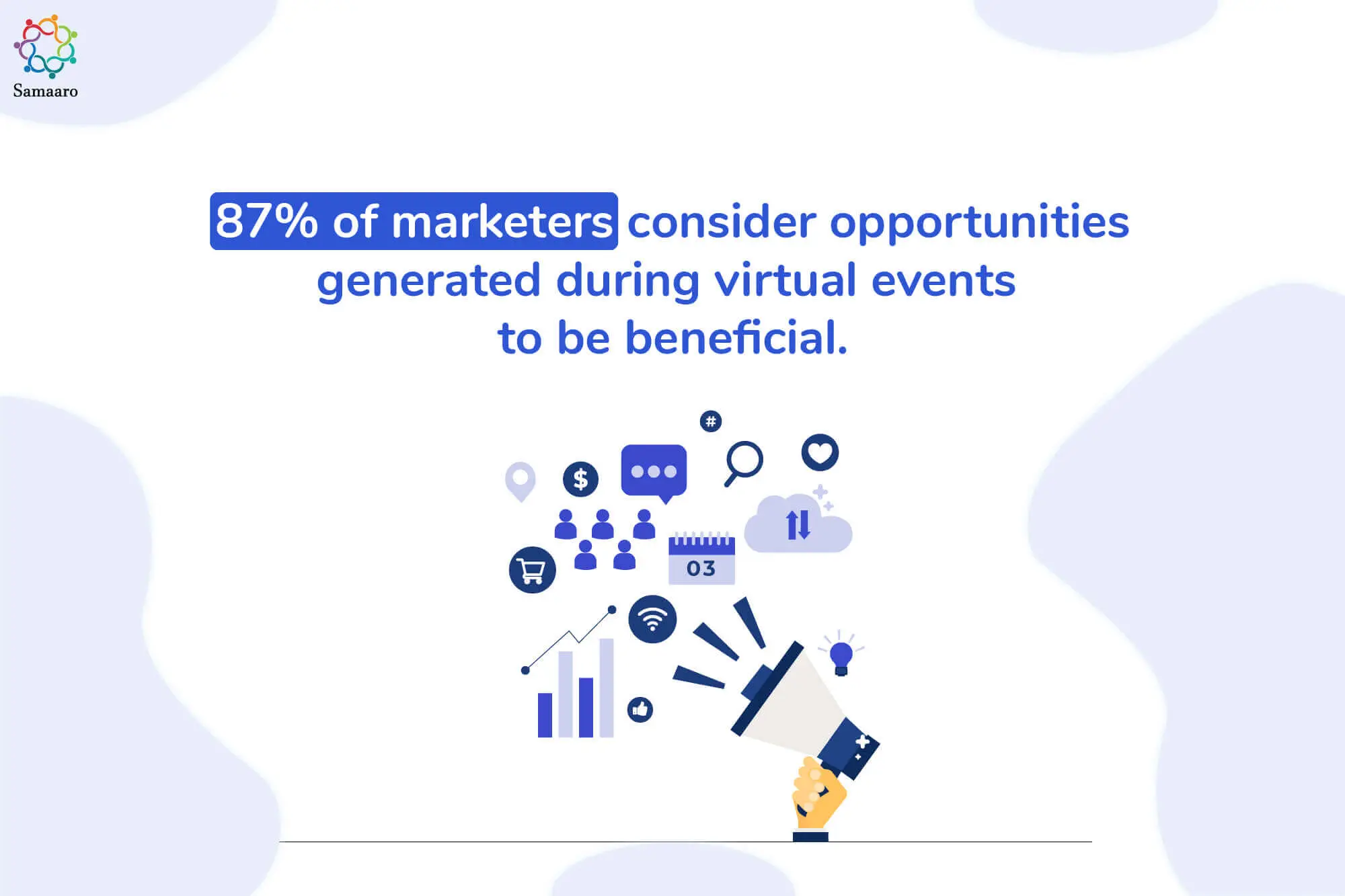
6. 80% attendees of virtual events said they are keen to attend live events in person within the next 12 months. (Source: The Drum)
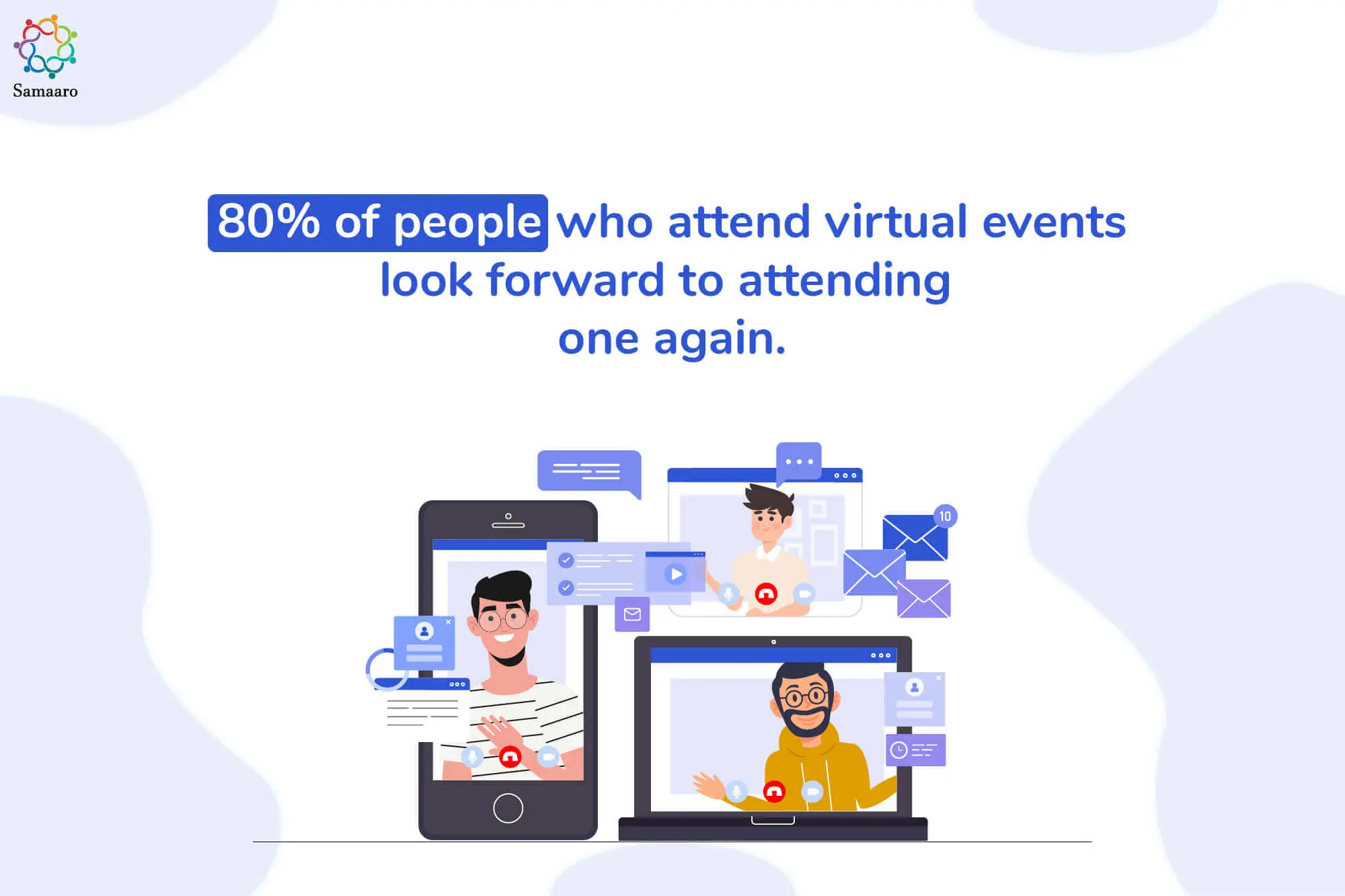
7. 65% of B2B marketers are planning to reallocate some or most of their live event budgets to online events, such as webinars, virtual summits, tradeshows and more. (Source: Event Marketer)
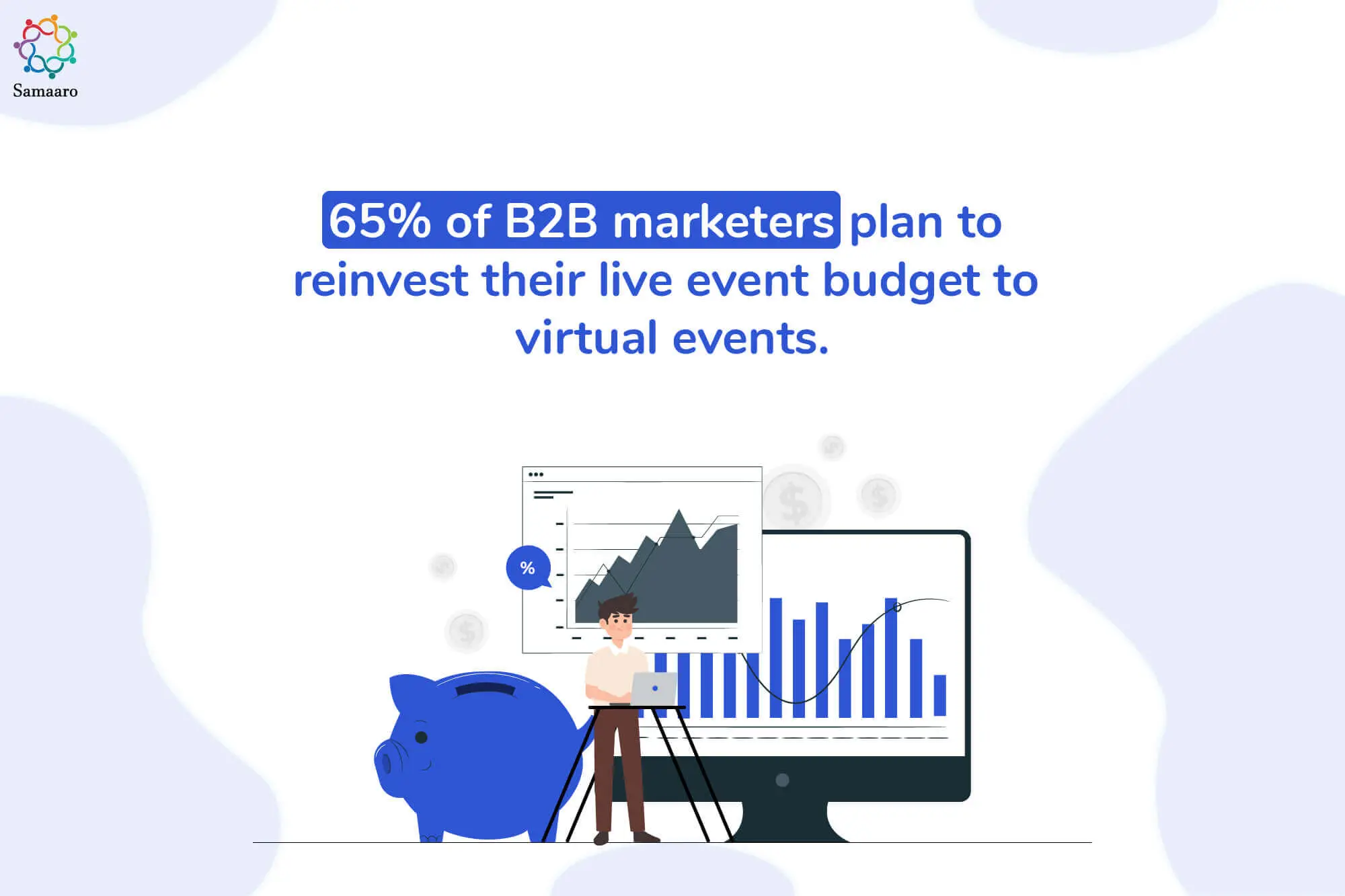
8. 80% of corporate sponsors are interested in investing in virtual events and 72% would be interested in hybrid solutions that combines in-presence with digital events. (Source: Travel Daily News)

9. 81% of virtual event organizers use social media to drive registrations. (Source: Markletic)
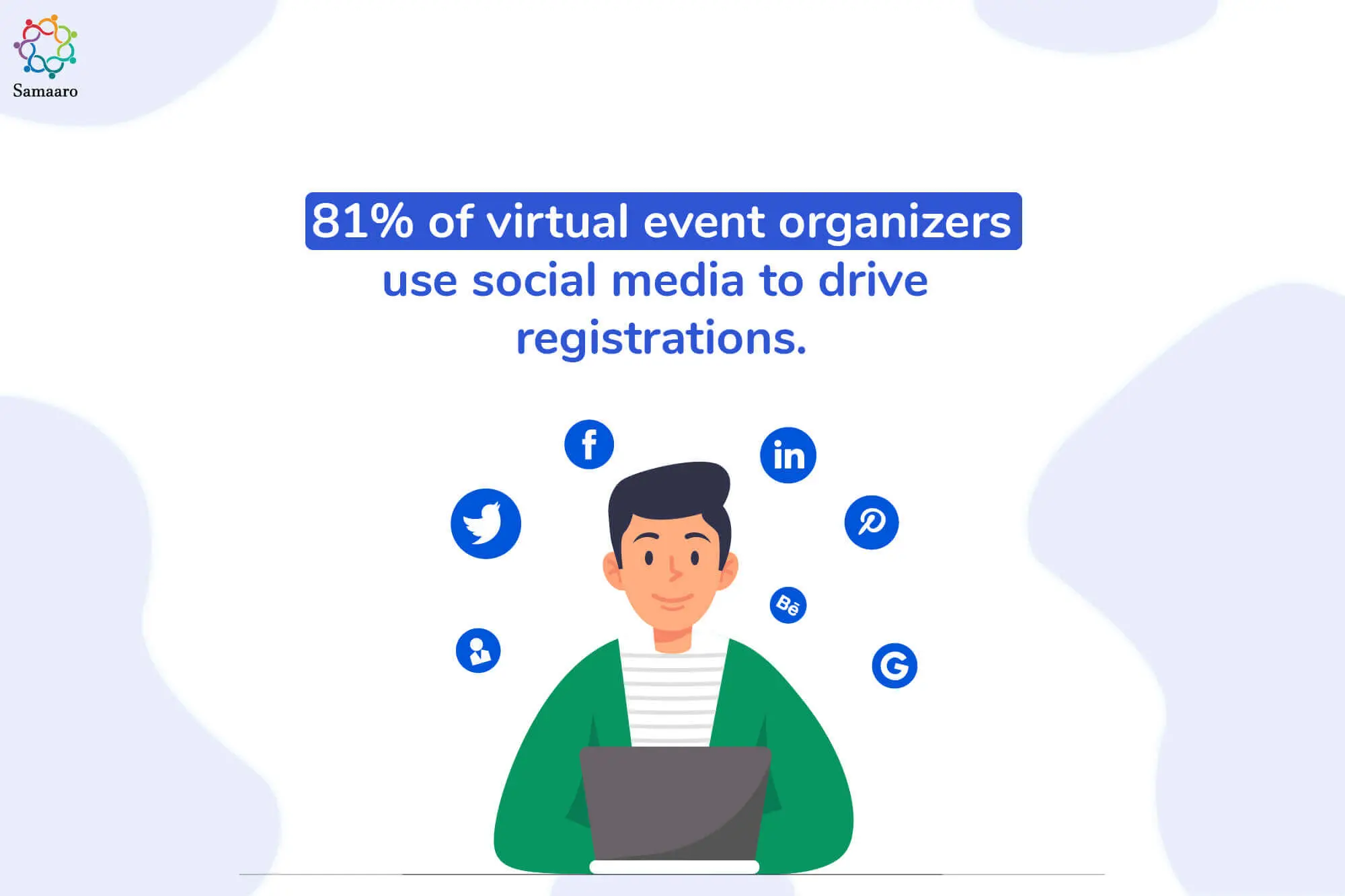
10. Among a survey of event marketers on their most preferred channel for promotion, social media (77.90%) tops the chart, followed by emails (72.35%). One new entrant in the list is community marketing (46.30%). (Source: Sweap)

11. 81.8% of virtual event organizers use interactive features like event polling and Q&A sessions to improve interaction during a virtual event. (Source: Markletic)
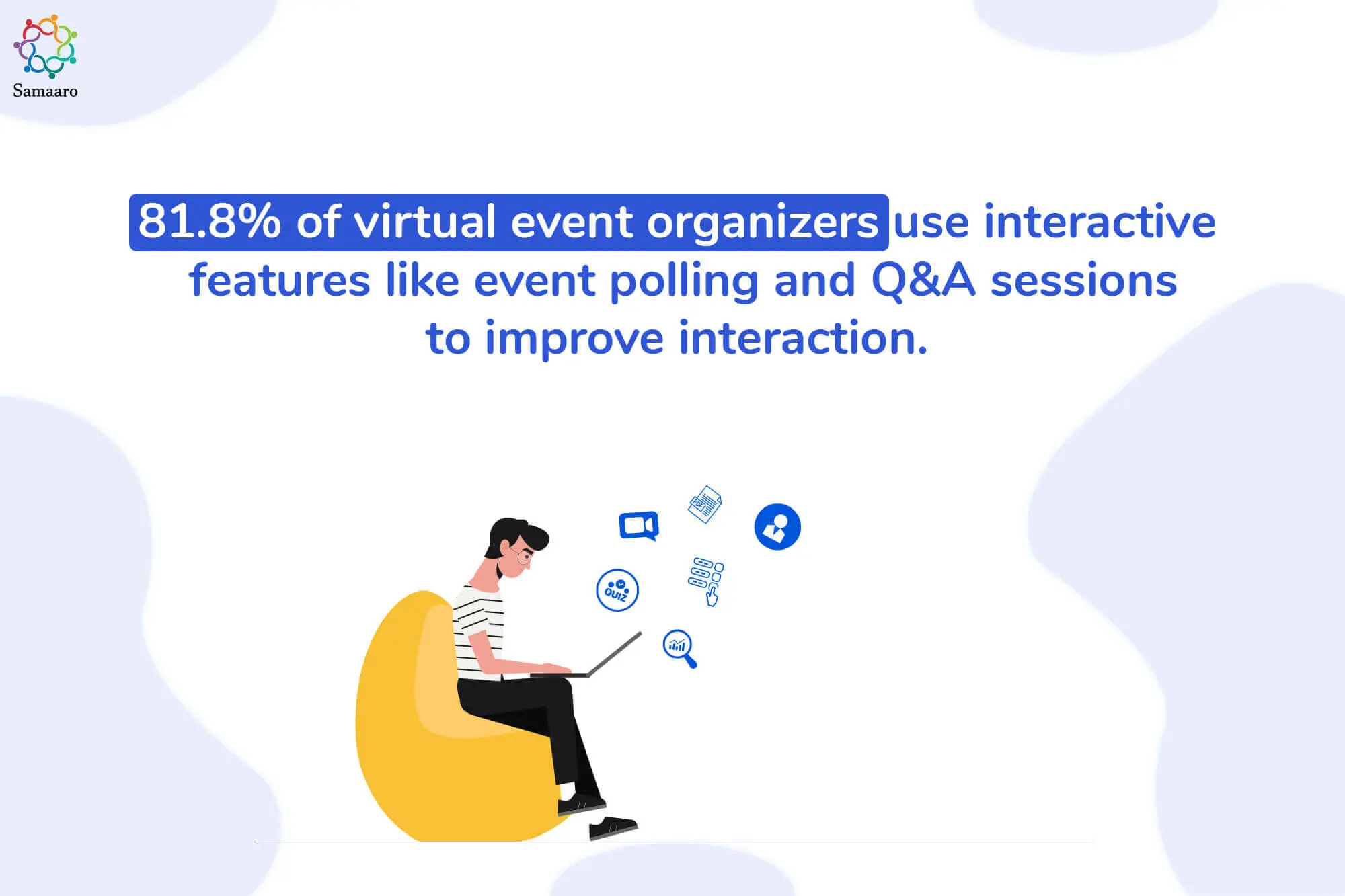
12. 54% of event planners are spending more of their time and attention on the attendee experience rather than logistics. Another interesting virtual event statistics shows that 33% of event planners would use additional budgets to invest in enhancing the attendee experience. (Source: AMEX)
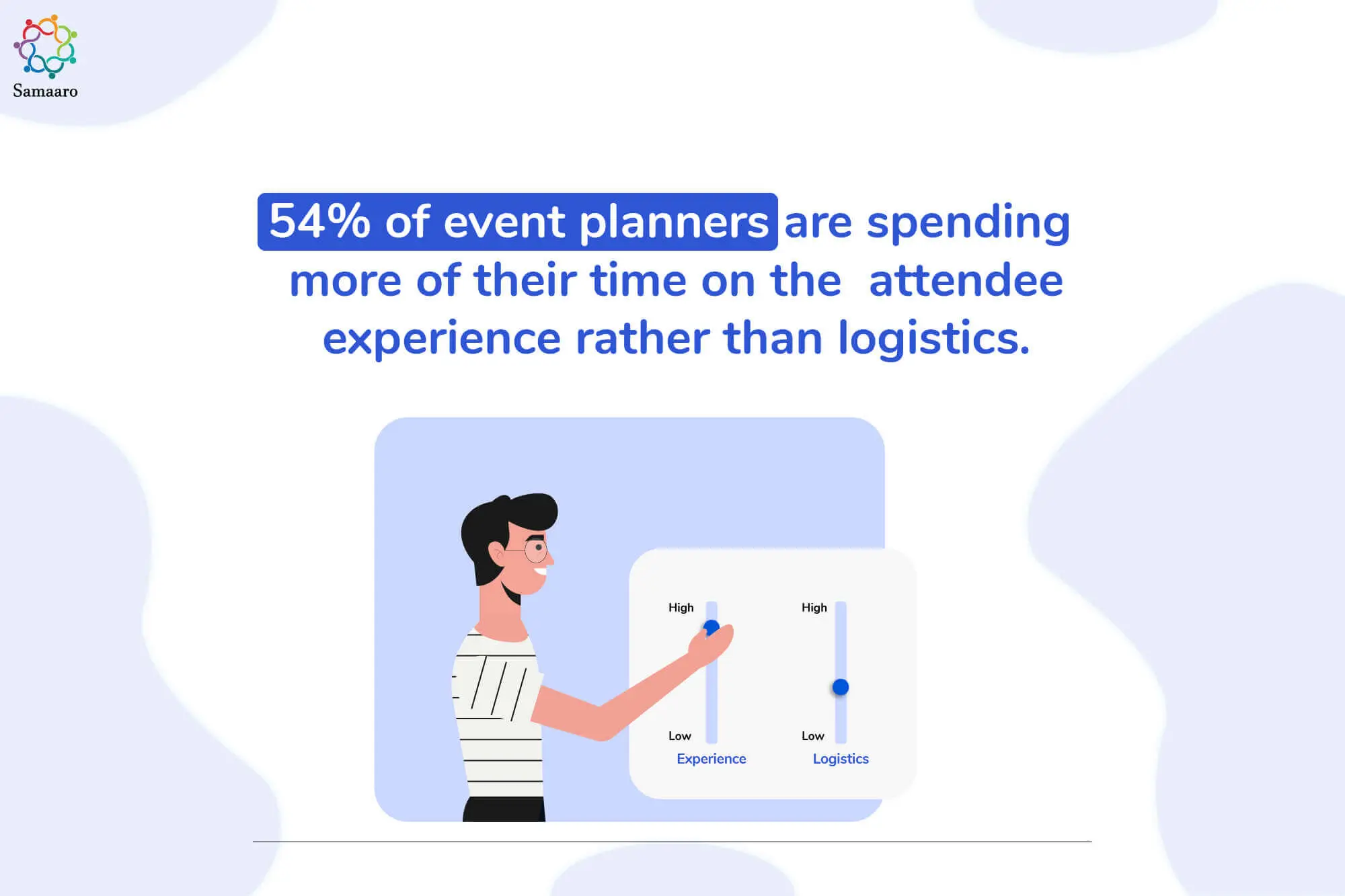
13. 70% of business owners and event managers feel that hybrid meetings will be important to the future of meetings. (Source: Biz Bash)
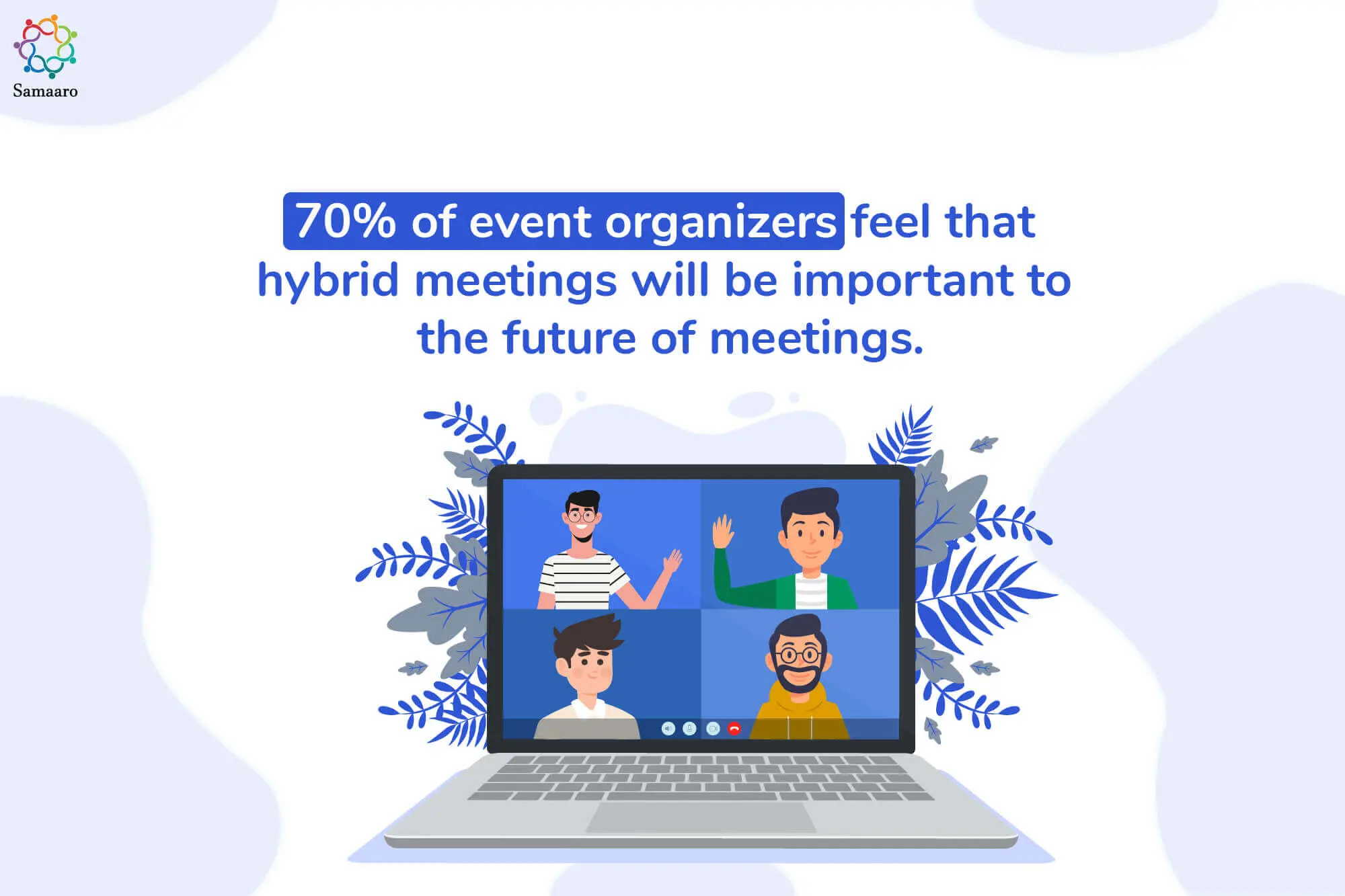
14. Live streaming (47.35%) and event management software (46.8%) are two of the most popular event tech solutions leveraged by event organizers. (Source: Sweap)

15. 50% all attendees at virtual events engage using social media, compared to just 16% at in-person events. (Source: Business Wire)
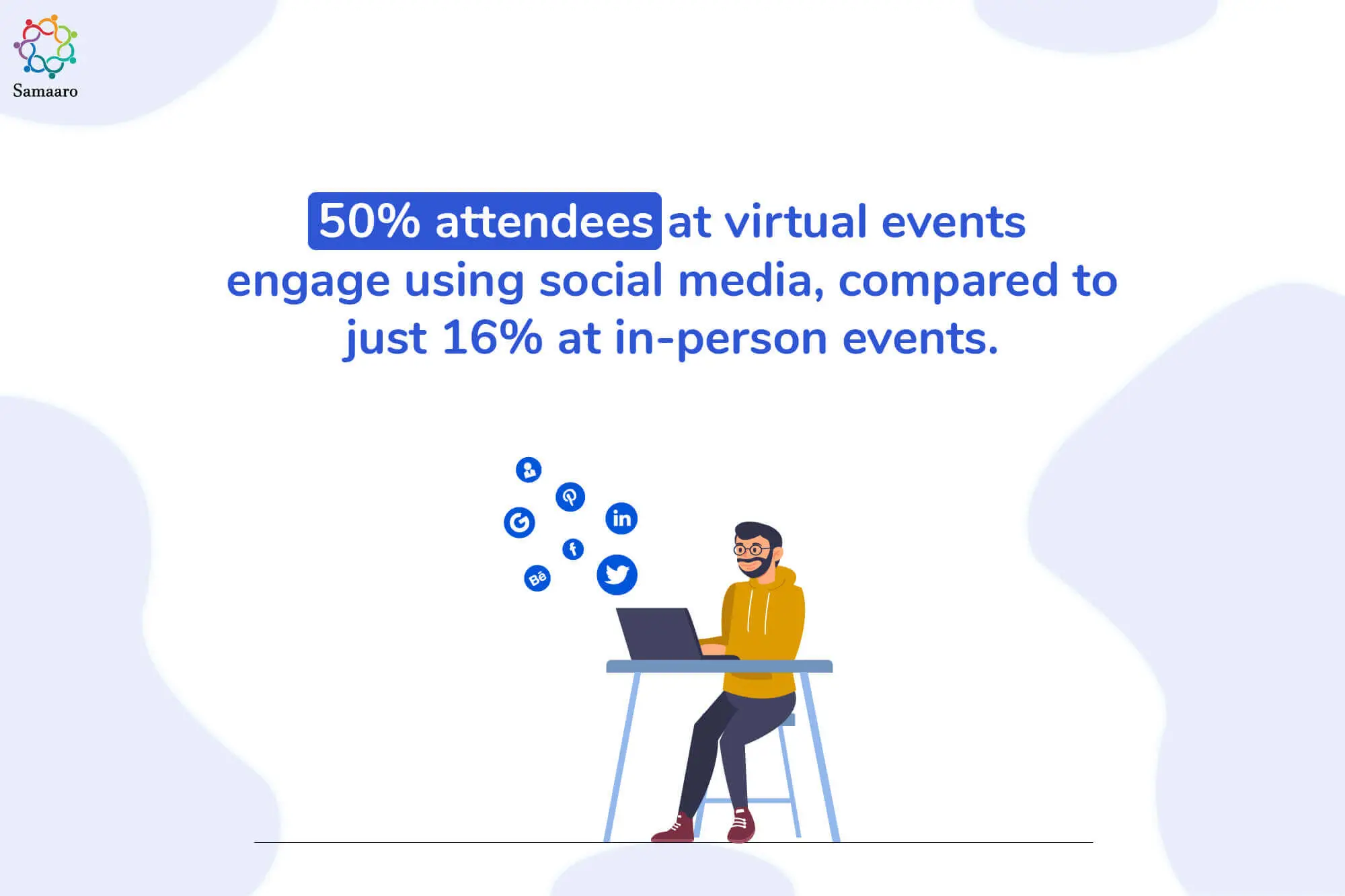
16. According to a study conducted by Event Marketing Institute and Mosaic, 89% of consumers who participated in the study felt that live events are the most effective medium to increase product understanding. (Source: Event Marketing Institute)

17. The top priority for remote attendees is learning – learning about the brands, the products/services they offer (36%), and general education (36%). The top features attendees are most likely to use are in-session chat (91%), live Q&A (90%), and profile-maker (85%). (Source: Kaltura)
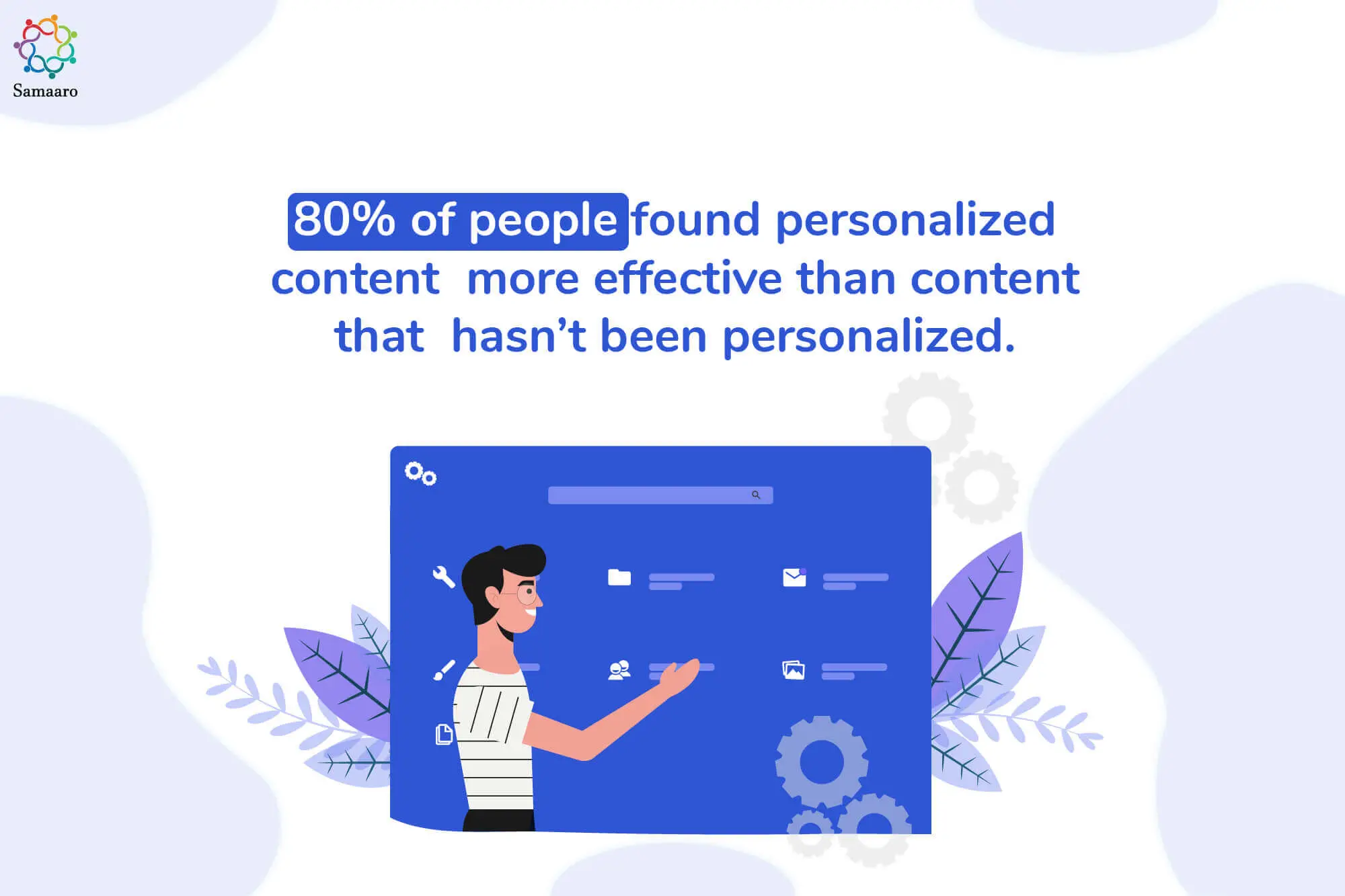
18. 74% of event professionals surveyed agreed data drives their decision making, and the study concluded that using data to make event decisions will come to the forefront in 2020. (Source: Endless Events)

19. 47% of event planners and organizers believed tailored break out session paths would be one of the biggest personalization trends for virtual events in 2020. (Source: Endless Events)
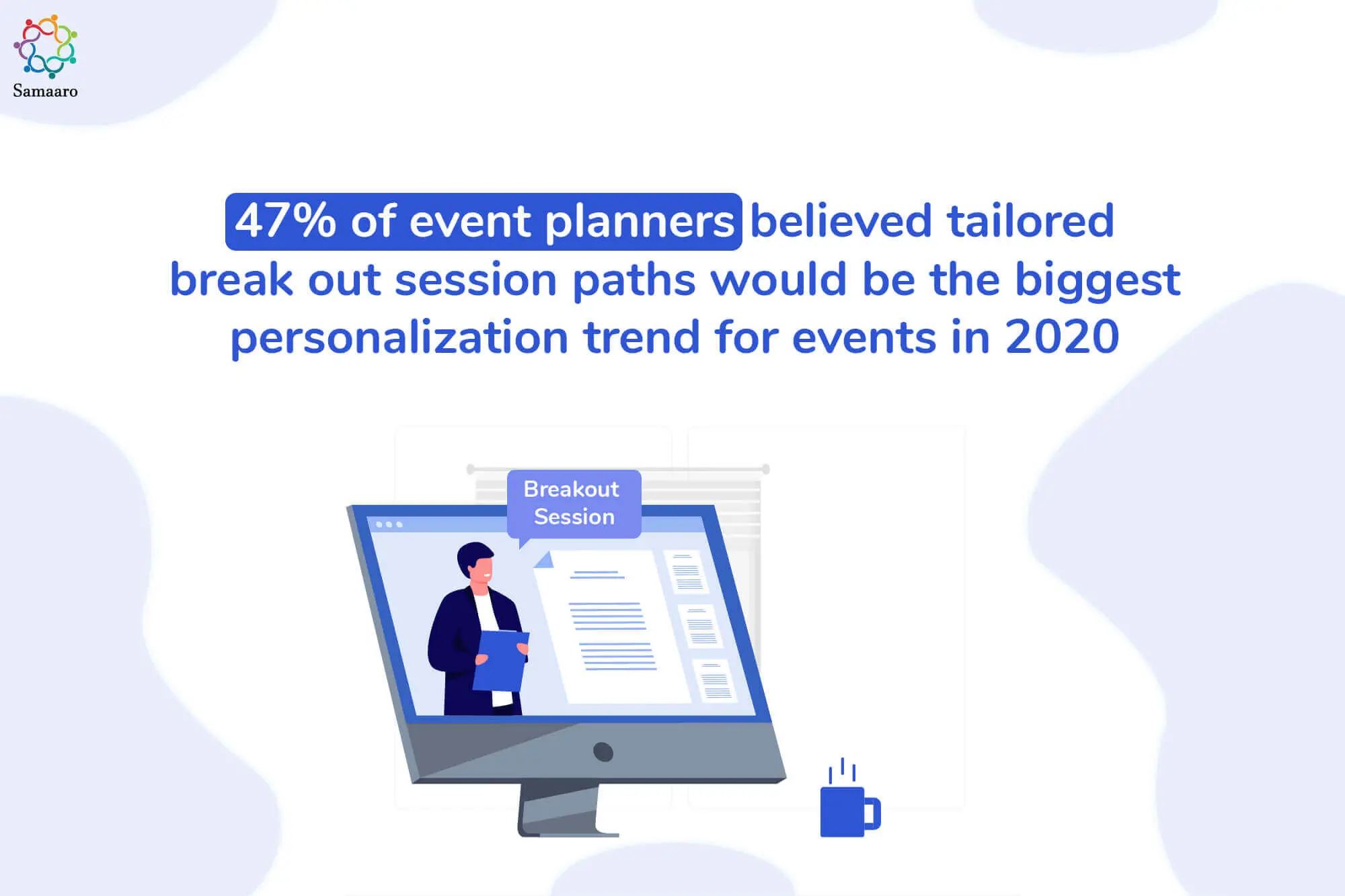
20. A study that focuses on the present scenario (2017-2021) of the global virtual events market reported that UC&C and video conferencing is the most popular application segment in the global virtual events market, responsible for generating over 85% of the total revenue. (Source: Business Wire)
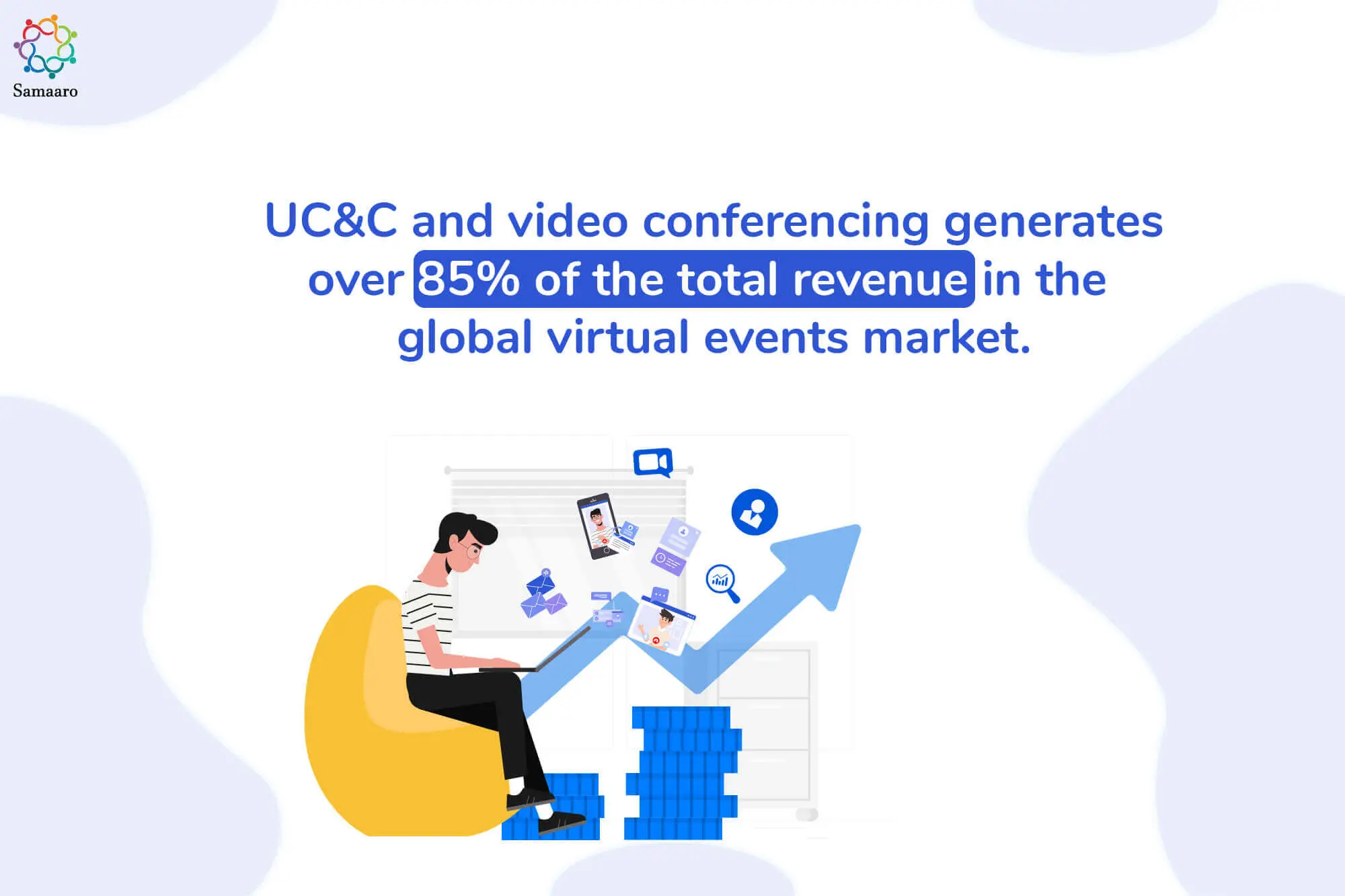
That was an end to our 20 amazing virtual event statistics. We will be updating this list as and when we discover new interesting statistics and insights from the world of virtual events. We hope this blog helped you get a better understanding of virtual events, its impact and its future.
Meanwhile, if you are still not sure about hosting a virtual event, then read our Ultimate Guide: An Introduction To Virtual Events
Excited about Virtual Events? So are we!! Reach out to Samaaro: The Most Powerful Virtual Events Platform, and watch us convert your Virtual Event idea into an amazing experience! Mail us on hello@samaaro.com to book a free demo.
Samaaro is the most powerful and one of the best virtual event platform that organizations leverage to host virtual events, virtual exhibitions, virtual conferences, and so much more. Ours is the one platform to go to for all your virtual needs – be it for Business Communication, Sales & Marketing, Education & Career, and Industry Uses to name a few. Our platform is rich in features for your business to effectively leverage to create a memorable virtual experience.

Built for modern marketing teams, Samaaro’s AI-powered event-tech platform helps you run events more efficiently, reduce manual work, engage attendees, capture qualified leads and gain real-time visibility into your events’ performance.
Location


© 2026 — Samaaro. All Rights Reserved.